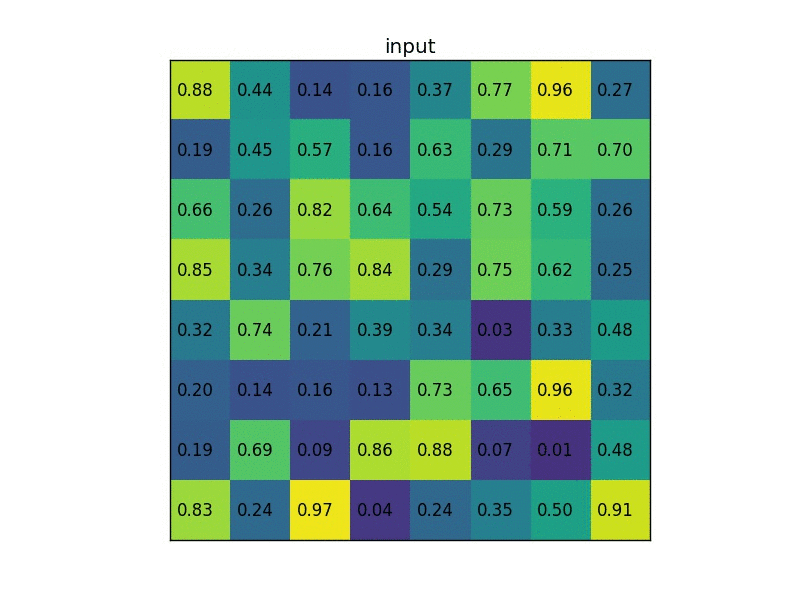ROI calculation
In this chapter, I am confused to ROI calculation, then I search from google, this web is helpful:
Region of interest pooling explained (deepsense.ai)
The calculation process as below:

-
A single 8×8 feature map, one region of interest and an output size of 2×2.
-
The region proposal (top left, bottom right coordinates): (0, 3), (7, 8).
-
By dividing it into (2×2) sections (because the output size is 2×2). int((7+0)/2)=3 and int((3+8)/2)=5, which split the region proposal into 4 part.
-
Select the max values in each of the sections.
interpretation of this chapter’s ROI calculation
To this chapter, why the rois = torch.Tensor([[0, 0, 0, 20, 20], [0, 0, 10, 30, 30]]) of
tensor([[[[ 0., 1., 2., 3.],
[ 4., 5., 6., 7.],
[ 8., 9., 10., 11.],
[12., 13., 14., 15.]]]])
is
tensor([[[[ 5., 6.],
[ 9., 10.]]],
[[[ 9., 11.],
[13., 15.]]]])
To calculate [0, 0, 10, 30, 30] ROI, we have to spilt element of matrix from (0,1) to (3,3) into four part. (which 1=10*0.1, 0.1 is the torchvision.ops.roi_pool(X, rois, output_size=(2, 2), spatial_scale=0.1)'s spatial_scale).
Calculation: int((0+3)/2)=1, int((1+3)/2)=2.
Result like image below:

Select max from each part is
[ 9., 11.],
[13., 15.]
I think you are not exactly right. Here is my interpretation of this chapter’s ROI calculation:
To calculate [0, 0, 10, 30, 30] ROI, we have to spilt element of matrix from (0,1) to (3,3) into four part).
Calculation: math.ceil((3-0+1)/2)=2, math.ceil((3-1+1)/2)=2
Result like image below:
